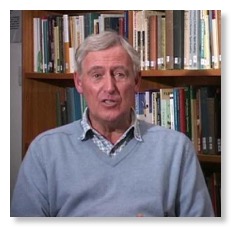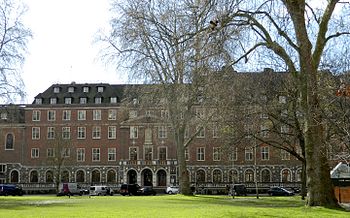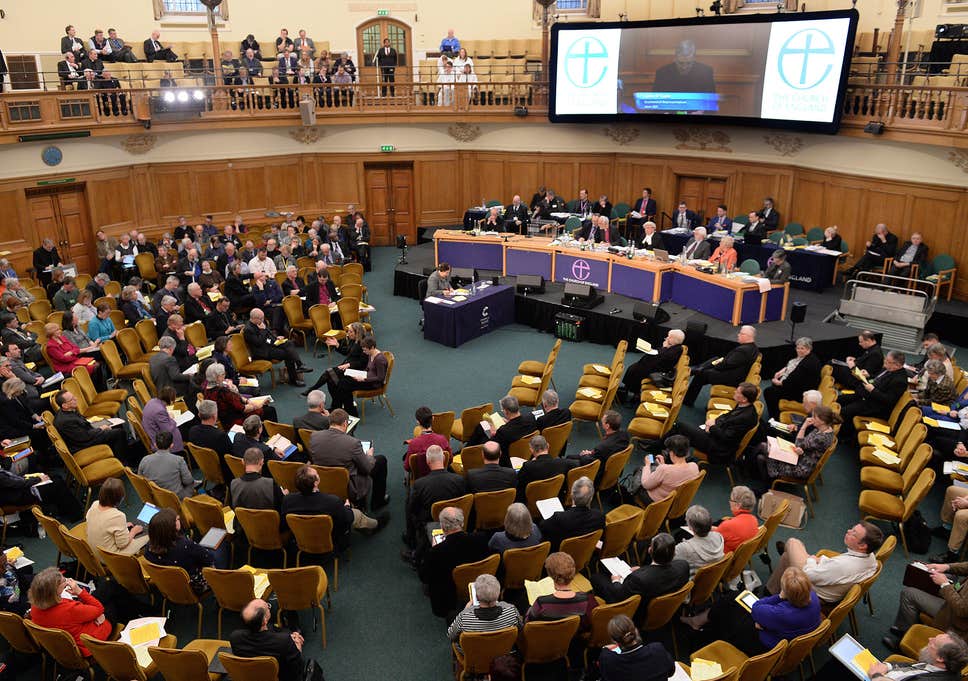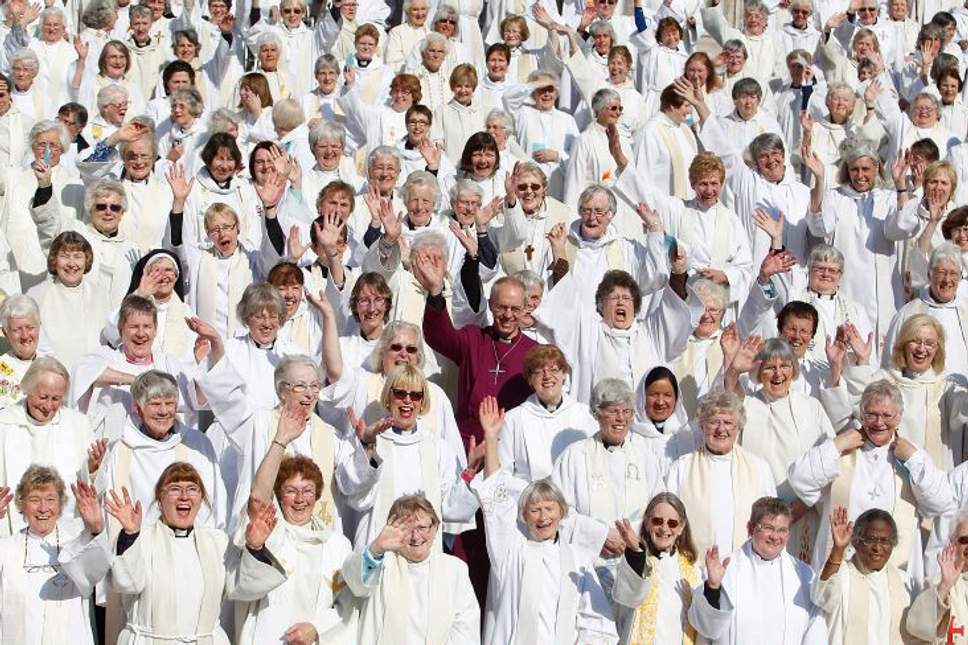

The news over the week-end that Jean Vanier had ‘manipulative and emotionally abusive sexual relationships with six women in France between 1970 and 2005’ , was a profoundly shocking statement. I cannot be the only person who from a distance had awarded him the status of a mini- saint. I began to reflect on the feelings about Vanier that were welling up inside me. What was it about this news story that made it personal to me? I thought back to the way I had nearly been drawn into an association with L’Arche some twelve years ago having been much impressed by Vanier and his writings. The Church Times had asked me to review and summarise a Vanier book for its book study-group page. Having expressed in print appreciation for Vanier’s ideas. a local L’Arche group invited me to visit their centre to make direct contact with their work. To my shame at the time I did not go. For some time, I felt bad about not following through when I written warm words about Vanier and his organisation.
What was the basis for my enthusiasm for L’Arche and its philosophy? To put my remarks into context I was beginning my interest in the workings of power dynamics in the Church. What I saw in Vanier’s work was something extremely relevant to a way of doing Christianity while avoiding any of the power games favoured by narcissists and the self-absorbed. While narcissists, and many of the rest of us, favour actions and relationships that promote our interests in some way, Vanier was showing us how to serve others with no expectation of any return. By concentrating on ministering to individuals who lacked power of any kind, Vanier seemed to be pointing the Church to a new path of humility. Luke’s Gospel has Jesus say (I paraphrase) when you invite someone to a meal, don’t choose the person who will invite you back. Invite the one who does not have the means of returning the invitation. In short do good to others when there is nothing in it for you in terms of financial or social advantage. The work of L’Arche in caring for and serving the mentally handicapped, the disabled, the abjectly poor and the severely traumatised has little to give you back in career terms. It is hard not to be tempted to do the opposite. Do good to those who will repay you in a variety of ways. Be attentive when you receive in return flattery and generous appreciation. Give time and attention to those who give generously to the restoration funds for your church. Much of this kind of behaviour is probably normal and to be expected. But it is when every action towards another person in a church context has this element of calculation about it that it risks becoming something dark. It is a relatively small step from being ‘nice’ to others to the kind of behaviour we associate with the narcissistic personality disorder. The narcissist is an expert in manipulating every relationship to their advantage. Even when they are being charming to others, the charm is being wielded in order to achieve their aim of being gratified at some level in terms of their narcissistic appetite. In an appalling betrayal of love, every relationship for the narcissist becomes an act of exploitation. This in some cases will include pursuing sexual favours. Jean Vanier, in his work of serving the humblest and most disadvantaged in society seemed on the surface to have found a way of completely removing himself from the temptation of narcissistic exploitative behaviour. Now from the appalling revelations of the week-end, it seems that he did not. I and many others who had looked to L’Arche to lead the Church in a revolution in the way it understands power, have been let down grievously.
The new Daily Telegraph revelations about Jonathan Fletcher are relevant to this reflection about Vanier. We knew that Fletcher had been guilty of unprofessional behaviour in his work of ministry within the REFORM/ReNew networks. Details have been sparse because his networks, by operating in a very authoritarian manner, have been able to shut down most of the details of this misbehaviour. I am not sure how to interpret the complete removal of all references to Fletcher’s existence on the Internet. This wiping of all information about him from the Net and the refusal of those with any kind of oversight over him to speak openly on the topic has put a definite black mark against the entirety of the network and given it, and especially its leadership, a pariah status for a long time to come. When leaders do not speak, they collude and are thus drawn into the evil of Fletcher’s narcissism and power abuse.
The new information that has come to light in the Daily Telegraph story reports, not on Fletcher’s sexual misbehaviour, but on other more mundane examples of what we would regard as examples of narcissistic power abuse. Martin Bashir, the author of one of the Telegraph pieces, tells of extremely controlling behaviour by Fletcher at Emmanuel PCC meetings. He also describes the way Fletcher favouritised certain individuals, no doubt in return for the narcissistic feeding that such favoured ones could offer in return. There is talk elsewhere of Fletcher accompanying selected members to massage clubs. The favouritism offered by Fletcher to one individual with a chequered financial past included introducing him to a vulnerable member of the congregation with a large sum to invest. Bashir acted as a protector for the vulnerable parishioner but, in doing so, he had to stand up to an irate Fletcher. As retaliation for standing up to him, Fletcher began to smear his reputation. As we can take the story at face value (assuming it to be thoroughly vetted by libel lawyers at the Telegraph), we build up a picture of a leader who is high up the scale of a narcissistic personality disorder. Such an individual will manipulate, cajole and threaten to receive whatever others can give them to gratify a variety of personal needs. Narcissists will always want to be thought as important, entitled and generally to be supreme in every single setting or organisation they take part in. As I write this, I hear echoes of another prominent narcissist in the White House, whose desire for control over everything makes him a self-proclaimed genius at foreign policy, the law and economics. Such people are always dangerous.
Once again, we have to emphasise that the failings of individuals in leadership roles can have catastrophic consequences not only for them personally but also for those around them who are followers and admirers. I was an admirer of Vanier for the way he seemed to offer a new way to understand love and power. The personality and teaching of Jonathan Fletcher would never have impressed me. It would quickly have been clear to me that Emmanuel Wimbledon was locked in a thoroughly dangerously harmful power dynamic, destructive both to the leaders and the led. The narcissistic self-absorbed habits of Fletcher have betrayed hundreds of his former parishioners. The innocent followers of Vanier have also been betrayed because they invested their idealism, the admiration and trust in a man who is now shown to have had feet of clay. In Vanier’s case there was less deliberate charismatic trickery (except possibly against the six abused women) and the followers may recover quickly with new leaders. Some of the followers of Fletcher are apparently still locked in their mental prison of seeing him as inspired by God and to be followed despite the evidence of wrong-doing. Most individuals, however, seem to have woken up from the hypnotic spell that Fletcher has exercised for over thirty years. What I find particularly galling is the way that all the leaders of the ReNew constituency continue to remain silent on the topic of Fletcher. This is a failure of leadership on a massive scale. Tens of thousands of conservative Christians are at this moment being persuaded that loyalty to a disgraced leader is as important as their loyalty to God. This is surely a huge failure of Christian leadership by the Vicars and Rectors of the churches that form part of Fletcher’s network. I for one will never set foot in any of their churches until this wrong is put right.
Two Christian leaders, each with enormous responsibility for carrying the hopes, ideals and trust of those who looked up to them, have failed their followers. There is indeed something innocent about being a follower of this kind. Indeed, there is something childlike in Jesus’ sense about wanting another human being who is wiser and experienced in life and spiritual wisdom to carry our projections and show us a better way. We desperately need a new generation of leaders of integrity to come and help show new ways to follow Christ.








